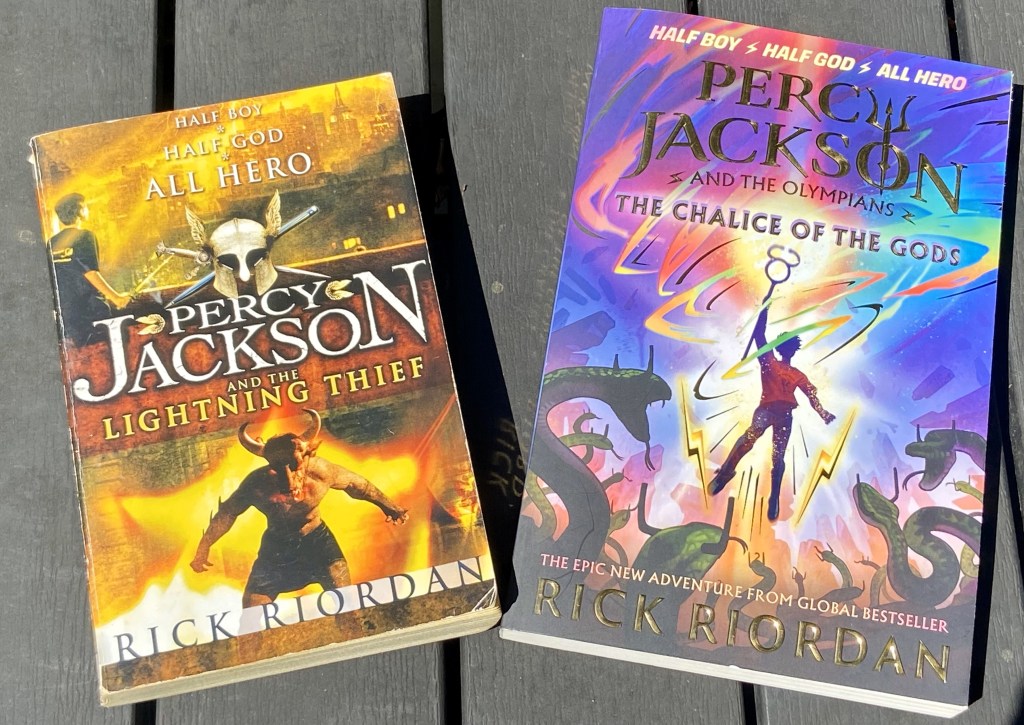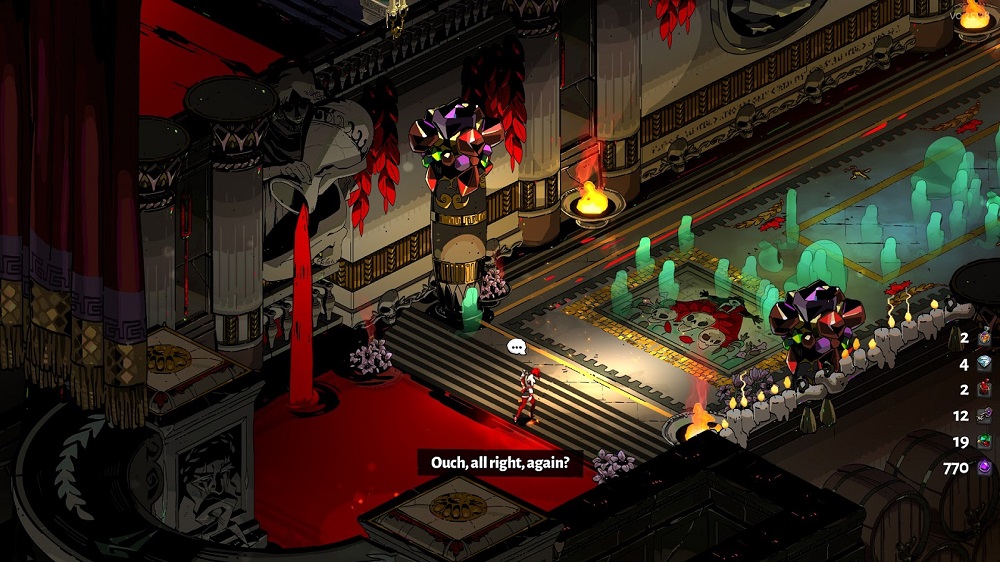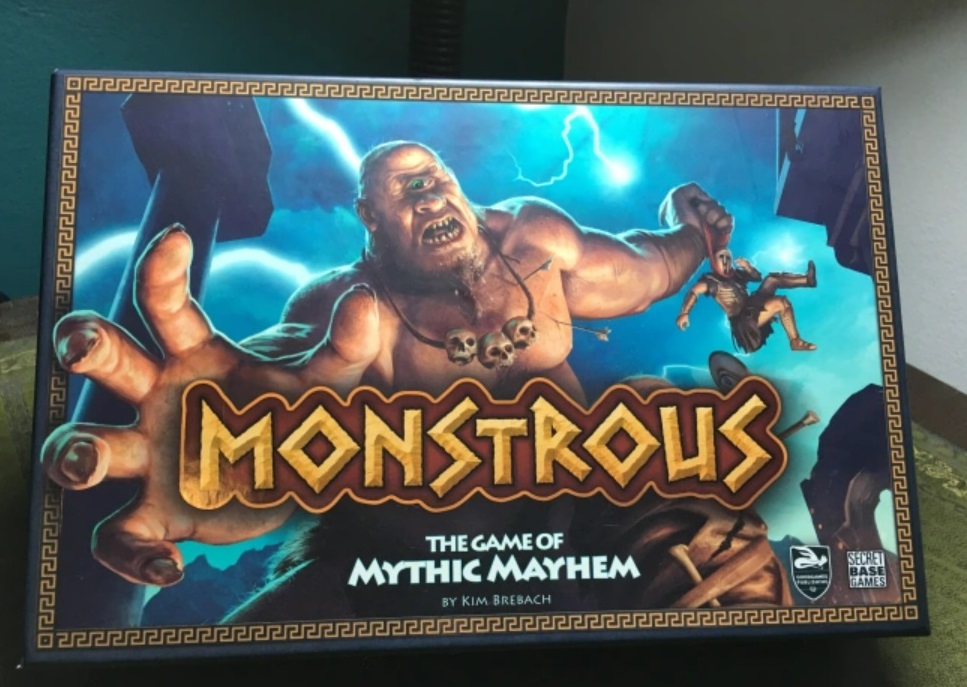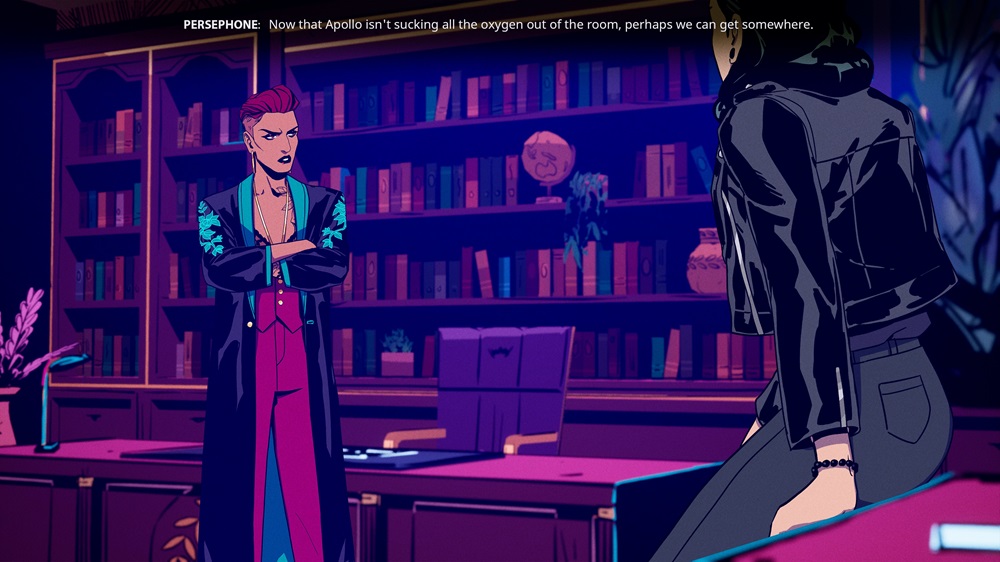Thank you, thank you, thank you to Rick Riordan and all the people who convinced him to do Percy Jackson and the Olympians on Disney+. After the absolute debacle with the movies, the new series was a relief. Super enjoyable, but mostly a relief.
Each week, the EG Family eagerly watched the latest episode, savouring its loyalty to the books while respectfully noting the differences. Starting many years ago, EG Dad and I took turns reading the books with each spawnling; I was recently reading Sea of Monsters with EG Zaltu when she decided she could read more during the day without me. *sad panda* She is now reading Mark of Athena in the “Heroes of Olympus” series and has relegated me to her “reference book buddy” when she wants to fact-check. I’ll take it.
If you are also a fan of the Disney+ series, there’s good news: Season 2 has been confirmed! No word on when it will be released, but I imagine they want to hold on to the momentum and ride the wind while it is still strong. December 2024 wouldn’t be unreasonable, but that is a looooong wait.
What will we do in the meantime?
Start with the Books
At the risk of stating the obvious, have you read the books?
The Halfblood Phenomenon started way back in 2005 with the first book, Percy Jackson and the Lightning Thief, by Rick Riordan. The story’s core is the same as the Disney+ series; it should be since Riordan was one of the executive producers and shares in the writing credits. There are a few differences (some subtle, some obvious), but most have been well-received by fans and critics alike.
Most fans know of the book’s origins: Riordan would make up stories about Greek Mythology for his son at bedtime. Being a history teacher himself, Riordan already knew the base material and had a fair idea of how to make the subject entertaining and appropriate for a younger audience. We should give offerings to Haley Riordan, who encouraged his dad to write the stories in a book.
While we are handing out thanks, here’s a big shout-out to the original group of middle schoolers who critiqued the first book and encouraged further stories. Lightning Thief is merely Book One in a six-part series, which is merely Series One in a connected universe of books. If you’re considering reading until the next season of Percy Jackson and the Olympians, be prepared:
- Percy Jackson and the Olympians (six books) – Greek Mythology
- Heroes of Olympus (five books) – Greek and Roman Mythology
- Kane Chronicles (three books) – Egyptology
- Magnus Chase and the Gods of Asgard (three books) – Norse Mythology
- Trials of Apollo (five books) – Greek Mythology
- The Sun and the Star (one book) – Greek Mythology
Books like Percy Jackson
Younger kids will love the action and fantasy in Riordan’s books, but they don’t always have the background knowledge of Greek Myths. And I swear, if you think the Disney-animated Hercules counts as Greek Mythology, then I clearly need to re-educate you. I love the soundtrack for that movie more than any other, but the storyline is a travesty…
Greek Myths by Marcia Williams
Anywho, I digress. Young geeks and Greek Mythology. A great place to start is Greek Myths, retold and illustrated by Marcia Williams. First published in 1991, Williams shares eight classic Greek Myths in classic comic-strip format with colourful detail. The selection of stories introduces most of the Olympians through their interaction with heroes rather than simply stories about the gods themselves. I like this approach because myths and legends are always about the stories and the people, and not just the deity.
Lore by Alexandra Bracken
For the older kids, I still like story-based books rather than straight reference material. If you like Percy Jackson, then you’ll love Lore by Alexandra Bracken. It is definitely for the older kids, in part due to the violence and trauma, as well as references to child slavery, abuse, murder, and attempted rape. Sounds gruesome, but it is comparable to Hunger Games and Scythe. None of it is gratuitous or super graphic, but it is there–and honestly, it is akin to the original Greek Myths and handled far better contextually.
Lore, the main character, was once a hunter in a secret sub-world of Greek legends who hunt gods during a special ceremony called the Agon. It is Zeus’ punishment to nine gods who dared to oppose him during an attempted uprising (read: #Zeusbeingajerk), occurring once every seven years. Lore is avoiding it at all costs, hiding out in modern New York and cursing everything to do with gods; same life, different city.
The appeal of Lore lies in Bracken’s skill with blending the ancient lore of Grek mythology with a modern New York socio-commentary on issues like misogyny and class divide. You can also catch glimpses of Bracken’s Greek heritage in parts of the story that feel more like traditional family stories and not the usual UK/USA retelling.
Games like Percy Jackson
Video Games: Hades
Still looking for more stuff like Percy Jackson? Okay, this one is for the gamers. Hades was one of the biggest games to come out of 2020; that weird and wonderful year where we were all looking to escape everything. Hades was that escapism. Except, there is no escaping Hades.
It’s a fast-paced roguelike action dungeon crawler–and it is unrelenting. It is the kind of game where you are constantly fighting over and over again; dying, reborn, do it again. Play this after reading Lore or Percy Jackson, and you will get a real feel for how absolutely childish the gods can be.
The narrative is a fresh take on the oldest myths. You play as Zagreus, son of Hades (the god, not the place), desperate to escape. Hades (both father and place) is pretty determined to keep you. So you have to fight your way out. As Zagreus, you face a labyrinth of dungeons through the many levels of Hades, which are ever-changing and ever-evolving. You are never alone, mainly because the gods can’t help but interfere with gifts and boons to help you. As you navigate the labyrinth, bits of the story start to be revealed through other characters. Like any good legend, there are only parts of the story; each part will bring you closer to freedom.
On top of this kaleidoscopic storytelling, there is a frenetic gameplay that is ruthless. Hordes of monsters and mini-bosses will kill you and send you back to base more often than you care to admit. However, each time gives you something extra: a weapon, a skill, a new contact. Essentially, you are going to die. A lot. And you need to die (a lot) to learn from your mistakes and level up. The mechanic is genius. And frustrating. But it’s more genius than frustrating. Trust me: this will keep you entertained until Percy Jackson and the Olympians – Season 2.
Tabletop Games: Monstrous
For those who like something a little more tangible, bring your dexterity to the table with the tabletop game Monstrous. First released in 2016, the concept is based on ‘capturing’ monsters by throwing your cards on the table. Intentionally. You can read my full review here. The short version: the Gods are losing the faith of mortals. Zeus has the genius idea to scare a little faith back to Olympus by releasing some monstrous pets and then have the gods capture them again, to ‘rescue’ the mortals. Sounds simple, right?
Except this is a competitive game. You may think it is a light easy throw of your card to capture a monster on that corner there. But your fellow gods are spiteful, and they don’t want you to win. They have set traps for you, and they will steal the faith of your followers. Suffice to say, coordination is key, and I am awful at this game. But it is a lot of fun and perfectly placed within the Greek Mythology theme.
Video Game: Stray Gods
Final suggestion: a little left-of-field but it has some very strong Riordan vibes about it. Stray Gods is a roleplaying narrative-based game, where music is as much a character in the story as everyone else. The Aussie game was released in 2023, winning the IGEA Game of the Year and features a strong cast for both dialogue and music (including Tripod with composition). To be fair, I haven’t played this game all the way through, so I can’t comment on it as a complete review. However, what I have played, I have liked. A lot.
The main character, Grace, is accused of murdering the last muse, Calliope, and subsequently inheriting her power of music. Grace must prove her innocence to the Greek Pantheon within seven days, revealing the story and mystery through lyrics and song. Your choice of lyrics guides the story and the outcome. It’s quite a clever mechanic; one that entices me to replay the game to see how things would unfold with different decisions.
Greek myths and legends hold an eternal grip on our imagination. No matter how old the story, nor how many times we have heard the tale, they continue to intrigue us. I love contemporary twists and variations, but most of all, I respect the underlying morals that somehow still apply to society today.
Of course, Greek mythology is only the beginning. Comparative mythology is a whole other multi-verse to explore. If you make it through this list before Percy Jackson and the Olympians: Season 2, come back and let me know in the comments. I’ll have a whole new list ready for you.
Categories: General Evil Genius
Evil Genius Mum
Evil Genius Mum
- Taking over the world, one blog post at a time







Minion Musings: